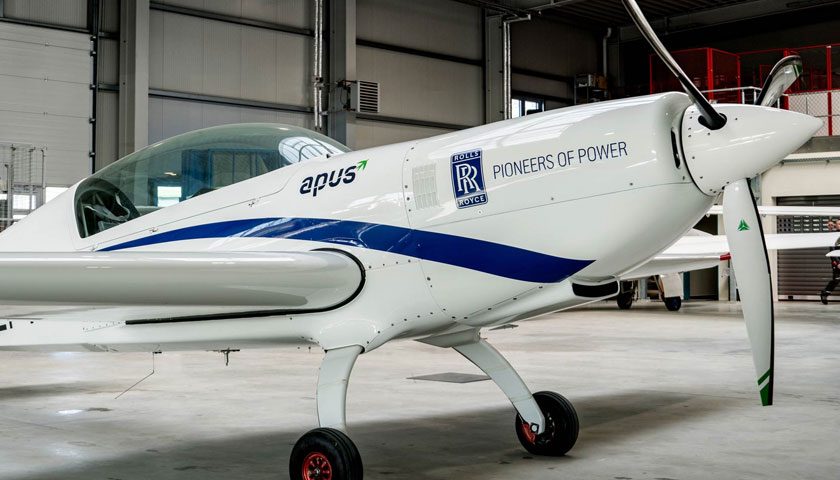Rolls-Royce joins the UN Race to Zero campaign in the run up to COP26 with a bold ambition to play a leading role in pioneering a resilient, inclusive, net zero carbon future.
This will see Rolls-Royce become net zero carbon in its operations by 2030 and, more fundamentally, set an ambition to play a leading role in enabling the sectors in which we operate to reach net zero carbon by 2050 through the development of new products and technologies. Today Rolls-Royce affirms that position in joining the Business Ambition for 1.5oC campaign.
As part of this commitment, Rolls-Royce will:
- Align its business to the Paris Agreement goals, to limit global temperature rise to 1.5°C;
- Use its technological capabilities to play a leading role in enabling vital parts of the economy to get to net zero carbon by 2050, including aviation, shipping, rail, and power generation;
- Continue to, and seek to accelerate, progress against stated company and industry carbon reduction targets and goals;
- Continue our investment in research & development (R&D) in pursuit of ever more efficient products and novel solutions to the climate challenge;
- Publish a clear roadmap later this year, setting out a pathway to enabling net zero carbon emissions by 2050, including interim milestones.
Rolls-Royce has always pursued clean, safe and competitive solutions to deliver society’s vital power needs. As we emerge from the shadow of this pandemic, this task is now more urgent than ever. To meet the demands of a growing, more connected society, the power that matters must be sustainable, net zero carbon power. We are determined to use our position as a leading industrial technology company to play a significant role in achieving net zero carbon emissions by 2050.
Later this year, we will set out the technology pathways through which we can achieve net zero carbon emissions across our operations, and the products we are proud to pioneer.
“The COVID-19 pandemic has brought immediate and obvious pressures to our industry and to us as a company, but the long-term challenges our world faces have not gone away,” said Warren East, CEO, Rolls-Royce. “The world on the other side of this pandemic will need the power that we generate to fuel economic recovery. I absolutely believe the call for that power to be more sustainable and net zero will be stronger than ever. Answering that call is a big, complex challenge and few companies on the planet are better placed than Rolls-Royce to help. We will use our capabilities to play a leading role in enabling the vital sectors in which we operate achieve net zero emissions by 2050. I believe this ambition will drive our competitiveness for the future.”
Rolls-Royce will focus on advancing key technologies, including:
- Driving step changes in the efficiency of engines, as well as working together with the fuels industry to significantly ramp up the availability of lower carbon alternative fuels.
- Leading an ambitious consortium to build small modular nuclear power stations that can provide competitive, clean, low carbon power at scale.
- Accelerating the development of disruptive new technologies and capabilities for future low emission products, including pioneering the electrification of flight.
- Continuing to deploy hybrid electric systems today in the rail and marine markets and to transition those capabilities into aviation.
- Delivering microgrid solutions to provide vital stability and back-up power, expanding the uptake of renewable energy by removing the challenge of volatility.
- Planning to achieve net zero greenhouse gas emissions from our operations and facilities by 2030, by using 100% renewable energy, pioneering closed loop manufacturing techniques on high value metals, and deploying our cutting-edge microgrid capabilities to support our estate.
Nigel Topping, UN High Level Climate Action Champion for COP26 added: “With 2.6 billion people and over half of global GDP now covered by net zero goals, Rolls-Royce is positioning itself to meet huge growth in demand for net zero transport and power. As a company operating in some of the hardest to abate sectors, this a big act of industrial technology leadership.”
Limiting global warming to 1.5°C requires systemic change across industries and borders. As an industrial technology leader, we believe Rolls-Royce is well placed to work across those parts of the economy and industry that are the hardest to abate.


